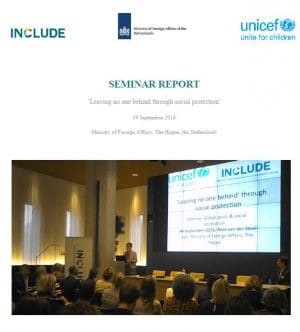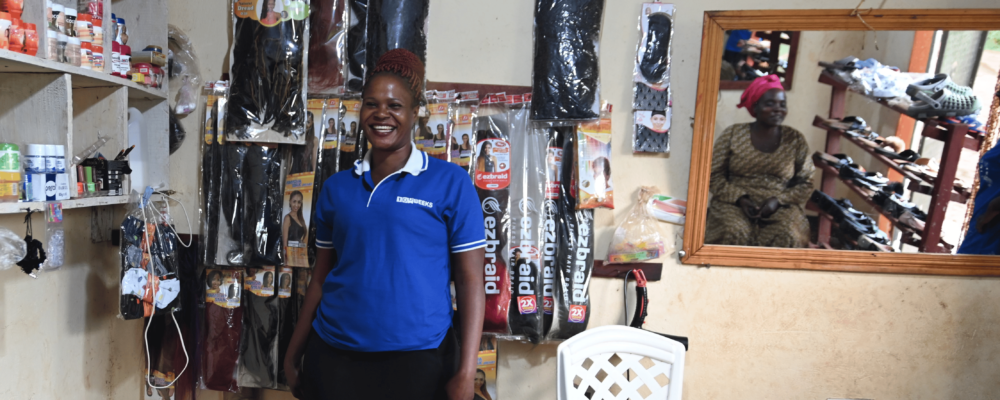
The seminar ‘Leaving no one behind through social protection’, held at the Ministry of Foreign Affairs in The Hague on 29 October 2016, dealt with the question how social protection can be used to achieve the Sustainable Development Goals. Approximately 80 participants from the Ministry of Foreign Affairs, NGOs and academic institutions attended the seminar, which revolved around the relationship between social protection and three key themes in Dutch development cooperation policy: food security, sexual and reproductive health and rights, and employability. Interactive discussions in parallel sessions resulted in an acknowledgement that social protection can stimulate food security, sexual and reproductive health and rights, and employability. Yet, this largely depends on the design and implementation of social protection, including its successful integration within existing policies, and the financial and political sustainability of programmes and policies. Other cross-cutting issues were the long-term cost-effectiveness of social protection and whether programmes should target specific groups or be universal. It was concluded that policymakers should consider the wide range of direct and indirect impacts that social protection can have to fully assess its potential for integration in development cooperation policies. As the impacts of social protection take time to materialize and are highly context-dependent, it is recommended to invest in social protection programmes that are based on long-term commitment.











